|
iCSC 2005
Lecturer Biographies
at the time of the school
|
|
| Paolo
Adragna |
Università degli Studi di Siena |
iCSC |
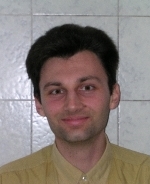 |
Paolo Adragna is undertaking PhD studies in Experimental Physics at
University of Siena. He is currently involved in the ATLAS experiment as one
of the developers of the GNAM online monitoring system and, together with
the people from INFN in Pisa, is participating to the commissioning phase of
the Tile Hadronic Calorimeter. Before joining the ATLAS group in Pisa as a
scientific associate, he already worked as a programmer for the CDF II
experiment at Fermilab in Batavia and for the VIRGO experiment at LAPP in
Annecy-le-Vieux.
Paolo Adragna is dottore magistrale in Physical Sciences and graduated from
the University of Pisa in 2004 with a thesis on online monitoring and
resolution optimisation of the ATLAS Tile Calorimeter.
|
|
|
|
| Miguel Anjo |
CERN |
iCSC |
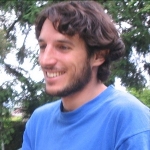 |
Miguel Anjo graduated in Computer Engineering at the
University of Coimbra (Portugal), with a thesis on Personal Data Storage in
Context-aware Systems, within a research group at University of Oulu
(Finland). He currently works at IT-ADC-DP (Databases and Applications for
Physics) section as Database Administrator and testing Oracle Real
Application Cluster for the future Physics Databases service.
|
|
|
|
| Ioannis
Baltopoulos |
Imperial College |
iCSC |
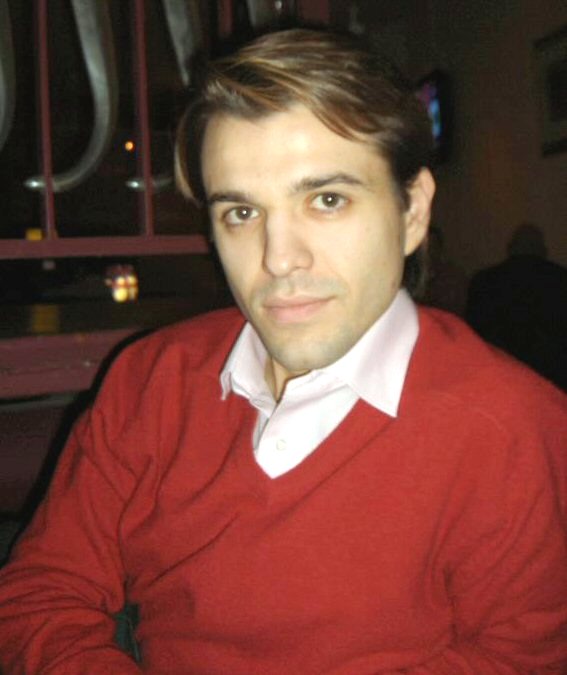 |
Ioannis Baltopoulos graduated last year from the University of Kent with a
degree in Computer Science obtaining the Top Degree with First Class Honours.
Having worked for Sun Microsystems for a year and at CERN as a member of the
ATLAS Trigger Data Acquisition group he has developed a broad range of
skills in the areas of web application development and web services. He is
currently studying towards his Master’s degree at Imperial College in London
from where he will graduate in September 2005. His research interests fall
within the areas of dynamic software architectures, architectural
description languages and web services which he hopes to explore through his
PhD work at Cambridge.
|
|
|
|
| Gerhard
Brandt |
University of Heidelberg |
iCSC |
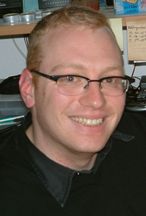 |
Gerhard Brandt is an experimental high-energy physicist from the University
of Heidelberg, where he received his diploma in physics in 2003. He is a
member of the H1 collaboration and currently working on his doctoral thesis.
His main research subject is the analysis of high-Pt phenomena. On the
service side he is release coordinator for the
H1 physics analysis software. During his studies he obtained some practical
experience in the HERA-B and ATLAS experiments.
|
|
| |
| Giovanni
Chierico |
CERN |
iCSC |
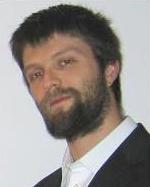 |
Giovanni Chierico graduated in Electrical Engineering at the University of
Padova (Italy), with a thesis on satellite telecommunication (DVB-S).
He currently holds a staff position at CERN, in the IT-AIS-HR (Human
Resources Management) section, developing and supporting J2EE and Oracle
based applications. He previously worked at the San Diego Supercomputer
Center (CGI/Perl/Unix), has been a consultant on .NET technologies and
developed Linux based web applications.
|
|
| |
| Brice Copy |
CERN |
iCSC |
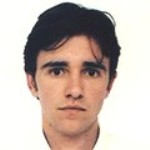 |
Brice Copy is working on the project planning
tools used by CERN to supervise and monitor large projects such as the LHC
construction, EGEE or the Atlas detector. He coordinates the technical
effort and investigates development best practices that allow CERN to create
web-based project management tools using best-of-breed open source
frameworks.
Brice Copy previously worked as software engineer at the Oracle European
development centre (Reading UK) where he worked on UML modeling tools and
Java development frameworks.
He obtained a MSc in "Distributed Applications and Networks" from the
University of Kent at Canterbury (UK) in 2000.
|
|
|
|
|
Ruben Leivas Ledo |
CERN |
iCSC |
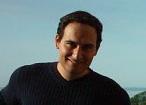 |
Advanced Software Development Engineering Track.
Working at CERN in the Internet Services Group.
Designer and Developper of the Listbox Plattform Migration for Mailing Lists
at CERN.
Most of his professional work has been oriented to the design and deployment
of Artificial Intelligence Information Retrieval Software Agents. He has
designed and participate in the development of commercial Web Mining
applications.
Currently, he is involved in a project of Mailing List Platform Migration at
CERN, this project affects to more than 45000 users and has the deployment
of a Web Application for New Mailing List Management (http://cern.ch/simba)
as one of the most important points for the Service. The technology used is
.NET with C#, ASP.NET, Perl and Python.
|
|
|
|
| Sebastian Lopienski |
CERN |
iCSC |
|
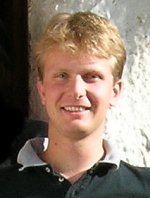 |
Sebastian Lopienski presently works in the CERN IT
Department, providing
Central CVS Service for software projects at CERN. He used to work in the
accelerator domain (CERN AB/CO), developing application for Controls in Java
and Visual Basic. He graduated from the Computer Science Faculty of Warsaw
University in 2002 (Master's thesis on Distributed Computing in Java). His
professional interests include security of computer systems and cryptography,
distributed systems and parallel programming, Java language.
|
|
| |
|
| Michal Kwiatek |
CERN |
iCSC |
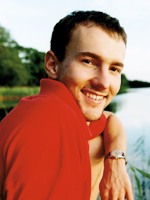 |
Michał Kwiatek has graduated from Warsaw University, Computer Science
Department. Back in Poland, he worked as web application developer and
database specialist for a major Polish mobile phone company. At CERN, he
works in IT-DES group providing support to oracle users and building
central deployment platform for Java web applications.
|
|
|
|
|
| Petr Olmer |
CERN |
iCSC |
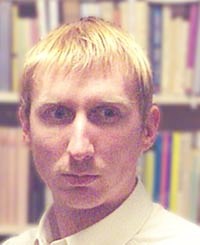 |
Petr Olmer studied computer science in Prague. He is interested in logical
aspects of artificial intelligence, and is writing a PhD thesis that brings
together multiagent systems, text mining, and socioware. Now he works at
CERN as a fellow in the IT department. He is responsible for workflow
applications of the CERN Computer Centre.
|
|
|
|
| Zornitsa
Zaharieva |
CERN |
iCSC |
.jpg) |
Zornitsa Zaharieva holds a Masters Degree in Industrial
Engineering from the Technical University – Sofia and a Masters Degree in
Computer Science, specialization Information and Communication Technologies
from Sofia University ‘St. Kliment Ohridski’.
She is
currently working as a fellow in the Data Management Section in the Controls
Group of the Accelerators and Beams Department at CERN. Her activities
include the design, implementation and support of databases and interfaces,
which are related to the needs of the accelerators control systems users
community.
|
|
|
|
iCSC 2006
Lecturer Biographies
at the
time of the school
|
|
| Marek
Biskup |
Warsaw University, Warsaw Poland |
iCSC |
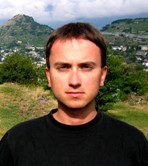 |
Marek is a
PhD student at Institute of Informatics, Warsaw University. Currently he is
involved in the "Pi of the Sky" astronomical experiment, whose goal is
online monitoring of the sky, looking for optical flashes. He stayed at CERN
as a technical student working with the ROOT team on improving transparency
of the subsystem for parallel data analysis - PROOF. He received Master's
degree in Computer Science from Warsaw University, Warsaw and Vrije
Universiteit, Amsterdam. The research for his Master's project included
development of a parallel grid application for spectral data analysis
(biophysics). Apart from his Computer Science studies Marek is finishing his
Master's Degree in Experimental High Energy Physics. His research interests
include parallel programming and distributed systems, computing for physics
as well as theoretical computer science.
|
|
| Jaroslaw
Przybyszewski |
Warsaw University of Technology, Warsaw Poland |
iCSC |
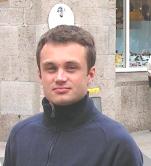 |
I am a MSc. student at Warsaw University of
Technology, Faculty of Electronics and Information Technology. I stayed at
CERN from October 2004 until September 2005 as a technical student. I was a
member of DES-DIS group and worked with Oracle databases backups. My thesis
is related to the area of my work at CERN - I am developing an application
that will support development of backup strategies for Oracle databases.
Apart from Oracle I am interested in machine learning, evolutionary,
heuristic and data mining algorithms.
|
|
| Liliana Teodorescu |
Universty of Brunel United Kingdom |
iCSC |
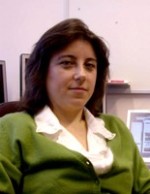 |
Liliana Teodorescu is a Lecturer at Brunel University,
UK. She holds a Ph.D. in Particle Physics from Bucharest University,
Romania. Since her graduation she worked on particle physics
experiments at different laboratories around the world: Thomas Jefferson
National Accelerator Facility (TJNAF), USA, Instituto Nazionale di Fisica
Nucleare (INFN) – Pisa, Italy and Stanford Linear Accelerator Centre (SLAC),
USA. She is currently working on CMS and BaBar experiments, being
particularly interested in development of new algorithms for data analysis.
|
|
| Vijayalakshmi Sundararajan |
Newcastle, United Kingdom |
iCSC |
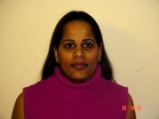 |
Vijayalakshmi
Sundararajan is currently a BCS-ISEB certified Test Analyst based in
NewCastle, UK. She has been actively working in the IT industry since
1999. She worked for one of India's largest software company and gained
expertise in software testing while serving clients like Morgan Stanley and
Lucent Technologies. In 2005, she collaborated through Université Libre de
Bruxelles, Belgium with the CMS computing team at CERN to develop the infrastructure for automatic software
validation.
|
|
| Anselm
Vossen |
Albert-Ludwigs Universität , Freiburg Germany |
iCSC |
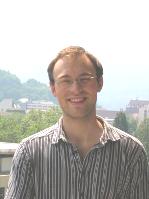 |
I am currently working on my doctoral degree in physics at the Albert-Ludwigs
Universität in Freiburg, Germany after receiving my diploma in computer
science at the same University. Our group participates in the COMPASS
experiment at CERN. The experiments main goal is to investigate the
structure of the nucleon. There I am involved in the physics analysis and
the development of intelligent tracking algorithms. My interests include
statistical learning and its application in HEP.
|
|
| Yushu Yao |
University of Alberta Canada |
iCSC |
 |
I am a PhD student at University of Alberta, Canada.
Working on Atlas, the "computing part" is on the simulation of LUCID
detector and the Monte Carlo study of some physics processes. Although I’m
still a newcomer to HEP, I have been playing with computers since I was 8
years old. Starting with Basic and DOS, I came across quite a few OS and
several languages, and started programming with C in junior high school.
Programming is one of my most favorite exercises (both mental and physical).
I've get a lot of stories to share with everyone. However, the more I learn,
the more I realize my weaknesses. I’m looking forward for the chance to
learn from all of you.
|
|
iCSC 2008
Lecturer Biographies
at the
time of the school
|
|
|
Iris CHRISTADLER |
Leibniz Supercomputing Centre - Germany |
|
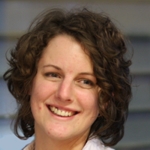 |
I am a
member of the grid and the user support teams at LRZ. We operate a 9728 core
SGI Altix 4700 and a heterogeneous Linux-Cluster with 800 cores. Together
with the MPG a cluster with 800 cores and 350 TB disc space is part of LCG
as a Tier-2 Center. In addition to LCG, LRZ is also a member of the DEISA/eDEISA
grid infrastructure. My work involves porting of applications to different
platforms, optimization, debugging and grid enablement, which is currently
limited to DEISA but should be expanded to LCG as well.
|
|
|
Jose Miguel DANA PEREZ |
CERN,
Geneva - Switzerland |
|
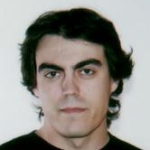 |
Jose M. Dana
studied at University of Almeria (Spain) where he obtained a M.Sc. degree in
Computer Science and worked for the "Computer Architecture and Electronics"
department for the last two years of his degree. Moreover, he is member of
the "Supercomputing: Algorithms" research group of his University since
2004. During his collaboration he has written several papers about scalable
image and video coding. He was a CERN Summer Student in 2005 and he worked
in compiler optimization related tasks (in CERN openlab). In October 2006 he
re-joined CERN openlab as a Fellow working this time in Grid deployment and
virtualization subjects. Right now, he is combining his work in CERN openlab
with his PhD studies.
|
|
|
Alfio LAZZARO |
University of Milan and INFN, Milan - Italy |
|
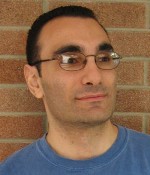 |
I am a postdoc in University of Milan, department of Physics, and I'm a
member of the BaBar Collaboration and recently a new member of Atlas
Collaboration . BaBar is an experiment of High Energy Physics
running at SLAC, Menlo Park, CA. Currently I'm the Physics Software
Coordinator of the Collaboration. The activity is finalized to develop and
maintain the code used for event reconstruction and data analysis. My
research is on physics analysis and software used for data analysis. In
particular, I study the charmless decays of B mesons to final states
containing an eta or eta' meson. For all these studies I have developed a
fitting program (maximum likelihood fits) in C++ language on Linux/UNIX
platform. This program,
called MiFit, uses ROOT and RooFit classes. I use several other techniques,
like Fisher Discriminant, Neural Network, Decision Tree. |
|
|
Manfred MUECKE |
University of Vienna
- Austria |
|
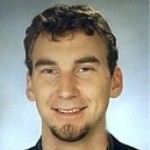 |
I studied electrical engineering
with emphasis on telecommunication and computer architectures. I am
interested in design and implementation of languages and compilers to enable
more efficient description and synthesis of complex FPGA-based computing
systems.
I wrote my PhD thesis at CERN, focusing on design methodologies for digital
signal processing on FPGAs. All LHC experiments use FPGAs in their data
acquisition systems at medium trigger levels. It was therefore a most
exciting work environment.
Currently, I am working on the optimization of molecular dynamics
simulations.
|
|
|
Andrzej NOWAK |
CERN,
Geneva - Switzerland |
|
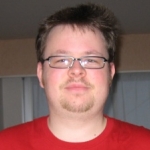 |
Andrzej Nowak has been working at CERN openlab, a partnership between CERN
and the industry (Intel, HP, Oracle), since 2007. His early research
concerned operating systems security, mobile systems security, and wireless
technologies. During his studies in 2005 and 2006, Andrzej worked at Intel,
where he researched custom performance optimizations of the Linux kernel and
took part in developing one of the first 802.16e (WiMax Mobile) wireless MAN
networking standard implementations. Soon after obtaining his diploma, he
joined openlab in January 2007. Andrzej deals mostly with multi- and
many-core architectures and parallel processing. Another significant area of
his work is platform optimization and performance assessment. |
|
iCSC 20010
Lecturer Biographies
At the
time of the school
|
|
|
David HORAT |
CERN, Geneva - Switzerland |
|
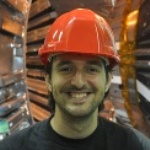 |
I was raised in Gran Canaria, a Spanish island near the African coast.
There, I studied a M.Sc. in Computer Engineering at the ULPGC. Encouraged by
my colleagues and friends, I decided to go abroad. I spent 6 months with an
Erasmus scholarship in the German University FH NordAkademie, where I
developed an eLearning platform based on Moodle and other tools. I later
worked on my Master Thesis which focused on accessibility and usability on
web applications. I graduated with distinction.
I am currently working as a Software
Engineer in the European Organization for Nuclear Research -CERN-
specialized in grid and web technologies. I have also worked at Ericsson in
its R&D labs as a specialist on communication protocols. Among other things,
I have participated as a Moodle mentor in the Google Summer of Code program.
|
|
|
|
|
Tim MUENCHEN |
Bergische Universität Wuppertal - Germany |
|
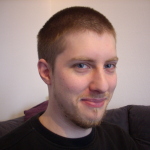 |
I studied computer science at the University of Applied Sciences, Münster,
and got my master's degree in 2007. In 2008, I started to work on my PhD
thesis at the ATLAS working group of the University of Wuppertal. I am
continuing development on the user space job monitoring software, JEM,
created at Wuppertal, and focus on the user interface (integration in the
job submission and management tool 'ganga') and a binary tracing module
allowing to monitor.(athena-) user algorithms written in C++.
|
|
|
|
|
Luis Fernando MUNOZ MEJĺAS |
CERN, Geneva - Switzerland |
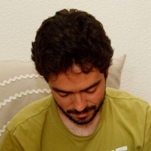
|
I am working on a central log service for the Computer Security Team, which
should allow for easier identification of ongoing attacks and faster
forensics analysis of . For this project I have already developed some
modules for rsyslog (in C language), as well as some database designs and
queries and scripts to use them (SQL, PL/SQL, Python, C, Perl). This task
involves also some understanding on SELinux policies, how to write them and
how to enforce minimum privileges. I'm also a skilled C++ programmer,
although probably not as efficient as I am in Perl, Python, C and bash
scripting which are my "working languages". Occasionally I maintain parts of
Quattor for which I'm an author. I'm mostly familiar with Linux at systems
administrator, user and low-level application levels, although have some
knowledge of Windows.
|
|
|
|
|
Malte NUHN |
RWTH, Aachen
University
- Germany |
|
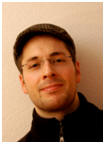
|
Malte Nuhn is studying physics and computer science at RWTH Aachen
University. He is about to finish his physics Diploma in the field of
Grid Computing and planning to graduate in computer science, soon. In his
spare time, Malte likes hacking around Linux and free software projects.
|
|
|
|
|
Benjamin RADBURN SMITH |
STFC Rutherford Appleton Laboratory, Didcot – U.K. |
|
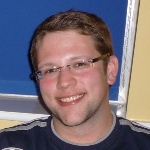
|
I am a first year PhD student with the University of Manchester studying
data mining and visualisation of particle physics datasets. I am currently
based at the Rutherford Appleton Laboratory (RAL) in the UK working between
the CMS group and e-Science Scientific Applications Group. The visualisation
techniques I am investigating include parallel coordinates and the grand
tour. The aim of the project is to create a program which is compatible with
ROOT that will implement these techniques. The program is being written in
C++ for Linux based systems but will be developed to run on other systems as
well.
|
|
|
|
|
David SVANTESSON |
CERN, Geneva - Switzerland |
|
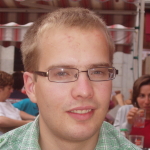 |
I am currently a technical student at the Online group of LHCb at CERN. My
main tasks are development and improvements of the control system and error
tracking for the data acquisition system. My work will be part of my M.Sc.
thesis in physics from Chalmers University (Sweden). In my work I mostly use
C, C++ and the SCADA system PVSS. I am also familiar with other computer
languages as Java, PHP, Javascript, MySQL, Matlab, LaTeX, bash scripts. I
use actively and configure different Linux/UNIX systems and occasionally
Windows.
|
|
|
|
|
Uwe WESTERHOFF |
Institut für Kernphysik, Münster – Germany |
|
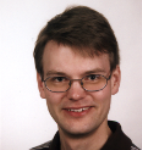 |
I am working as a PhD student at the "Institut für Kernphysik" in Münster
for the ALICE experiment. In my diploma thesis I have developed the online
control software for the Transition Radiation Detector of ALICE. Currently I
am involved in the development of online particle identification methods for
the Transition Radiation Detector to identify electrons with high transverse
momenta in pp and heavy ion collisions within a few micro seconds.
Furthermore I am the system administrator of our computer network and
involved in the maintenance of a 100 CPU cluster, which is part of the ALICE
computing grid.
|
|
iCSC 20011
Lecturer Biographies<at the
time of the school
|
|
|
Andres ABAD RODRIGUEZ |
CERN, Geneva - Switzerland |
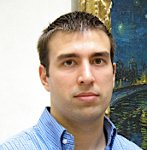 |
When I arrived at CERN in 2007, I worked during a year in the control system
group of IT in the Gas Control System for the LHC. Since September 2007, I
am working for the European project ETICS. It provides a system for the
configuration, building, testing and integration of software. We have a web
interface and a command line client from where our users, like Glite, can
manage their configurations, submit builds and tests and get their results
(binaries and reports) in a repository. We have introduced recently the
possibility of send multinode tests. Inside the team, I am responsible for
some modules of our web application (Java/J2EE and AJAX with GWT), the
webservices (AXIS) and the database (MySQL).
|
|
|
Nicola CHIAPOLINI |
Universität Zürich - Switzerland |
|
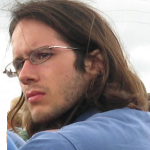 |
I have been working for the TT sub-detector of LHCb during both my Bachelor
and my Master thesis. Since January I am back with my previous group as a
PhD student. At the time of this writing my work concentrates mostly on the
detector alignment.
|
|
|
Luigi GALLERANI |
CERN, Geneva - Switzerland |
|
 |
My current work is in virtualization using the OracleVM technology, and
adapting it to the CERN cluster infrastructure management system. This
provides a transparent and Quattorised integrated layer of virtual Red Hat
Enterprise and Scientific Linux machines for virtual IT-DB services hosting.
I have an indepth knowledge in Networking and in GNU/Linux Operating
Systems, which I use in the development of these virtualization solutions.
Collaborating with the CERN openlab and using a multiprocessor computer, I
am also studying the OracleVM performances. The aim of this task is to find
the best load balancing configuration for the services that will run on the
new cluster machines. I have good experience in OS scripting languages,
imperative and OO-programming, in particular the C family. My MSc Thesis and
previous work at the LHCb, gave me also skills in real time SCADA system
programming. I have also become a CERN guide, and in learning more about the
Particle Physics Experiments, have been able to help educate visitors.
|
|
|
Carlos GARCIA FERNANDEZ |
CERN, Geneva - Switzerland |
|
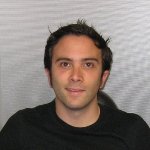 |
Coming from Spain, I studied at the University of Oviedo. Thanks to them I
got the opportunity to come to CERN as a Project Associate.
During this first period at CERN, I
was developing and maintaining the configurations in the infrastructure of
CERN network, migrating from CISCO Firewall to IPTables Firewall. As well I
was giving support to FlexLM License Management system, and using CERN
Fabric Management Infrastructure (http://cern.ch/quattor)
to fully automate installation and maintenance of some servers, managing
Linux RPM’s software distribution and installation systems.
One year later I got an openlab Fellowship in which I am currently
working and my tasks consists in the integration of Oracle VM server within
CERN infrastructure. I have been working in the integration at the host
level in CERN ELFms (the large scale management system) and currently I am
working in the integration at the guest level, as well as the migration of
application and database servers to these virtual machines. I am familiar
with Unix/Linux environments, as well as Windows. I have been working with
shell, perl, scripting programming, and I like to program as well in Java
and Web technologies.
|
|
|
Belmiro Daniel RODRIGUES MOREIRA |
CERN, Geneva - Switzerland |
|
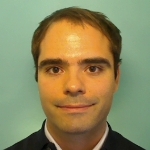 |
I finished in 2004 a BSc degree in Mathematics lectured at UTAD – Portugal,
and in 2009 a Integrated MSc degree in Informatics and Computer Engineering
lectured at FEUP – Portugal. Currently I'm working at CERN in the IT-PES
group in two different virtualization projects that covers the two big use
cases which have been identified at CERN:
the service
consolidation project and the batch virtualization project.
The first project aims to achieve the traditional benefits of service
consolidation like: decoupling hardware and system image lifetime, reduce
the power requirements, maintenance advantages, etc. With the batch
virtualization project the main objectives
are: dynamic change of worker node types dependent on requirements;
customization of images for specific use cases, possibility to mix virtual
and real resources, etc.
We were able to run more than 15000 VMs managed by OpenNebula in ~500
hypervisors, to evaluate the LSF scalability. Also, I am involved in the
evaluation of the Infrastructure Sharing Facility (ISF) tool by Platform
Computing and participate in the HEPIX working group, particularly in the
image distribution schema. I'm familiar with various virtualization and
cloud technologies.
|
|
|
Frank VOLKMER |
Bergische Universität Wuppertal- Germany |
|
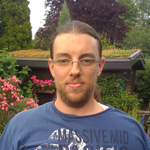 |
In the last months I gradually took responsibility for maintaining the ATLAS
Production System Dashboard which monitors all ATLAS tasks, where they are
executed, how much cpu time they use end whether they are successful or not.
The ProdSys Dashboard uses the Dashboard Web Framework, which was written in
Python and developed at CERN. The dashboard runs on an Apache + mod_python
system at CERN. This work includes the fixing of bugs and solving problems
as they arise, as well as maintaining the dashboard and carrying its
technology into the next decade. We, the dashboard team, started working on
a new system that will use newer, more dynamic web technologies. This will
help to generate new content for the dashboards more easily. From my
previous work in the private sector and at university I acquired programming
skills in C, C++, Guile and Java on all relevant operating systems,
including Windows XP, Mac OS X 10.5, Ubuntu and CentOS.
|
|
|










.jpg)























